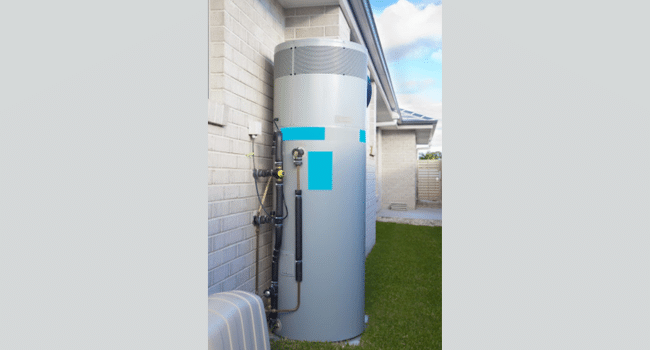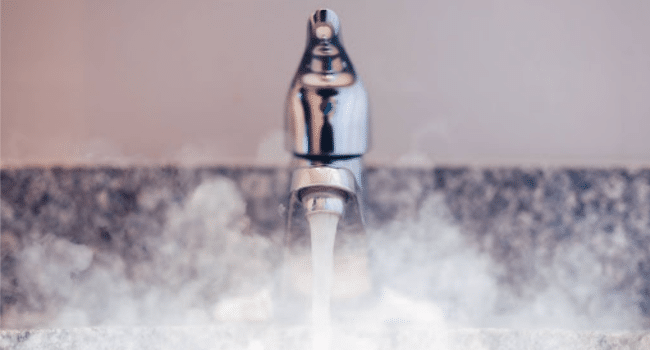Table of Contents
Hot water systems play a crucial role in both households and businesses, providing a constant flow of hot water essential for various daily activities. Whether it’s taking warm showers, washing dishes, or supporting industrial processes, the importance of a reliable hot water system cannot be overstated. However, like any other appliance, hot water systems have a finite lifespan. Generally, a hot water system can last anywhere from 8 to 15 years, but this can vary significantly based on several factors. The intent of this article is simple—to inform readers about the typical lifespan of a hot water system and to highlight indicators of wear and tear.
Understanding the Lifespan of Different Hot Water Systems
Hot water systems come in various types, each with its own longevity expectations and influencing factors. Knowing the type of system you have is essential for making predictions about how long it might last.
-
Electric Hot Water Systems
Electric systems are prevalent in many homes due to their accessibility and ease of installation. Typically, an electric hot water system has a lifespan ranging from 10 to 15 years. Their longevity can be affected by the quality of installation, frequency of use, and maintenance practices. An electric system with consistent usage in a household, without proper maintenance, may experience reduced longevity.
-
Gas Hot Water Systems
Gas systems are known for their efficiency and fast heating capabilities. These systems usually last between 8 to 12 years. Factors such as usage patterns, type of water (hard or soft), and how often the system is serviced greatly influence their lifespan. Regular maintenance, including checks on gas connections and burners, helps extend the life of gas systems.
-
Solar Hot Water Systems
Solar systems, an environmentally friendly choice, generally have the longest lifespan, often lasting between 15 to 20 years. The lifespan is strongly influenced by the quality of solar panels and the components used. Installation quality and the climatic conditions of the location also play significant roles in determining how long a solar system will last. Regular cleaning of solar panels and checking for any damage ensures prolonged efficiency and life.
-
Tankless (Instantaneous) Hot Water Systems
Tankless systems, also known as instantaneous systems, have gained popularity due to their on-demand heating and energy efficiency. These systems tend to last around 20 years, depending on brand quality and maintenance. Since tankless systems do not store hot water, they generally suffer from less wear and tear than tank systems. However, regular descaling and professional inspections are necessary to keep them running efficiently.
Importance of Knowing Your System Type
Understanding the type of hot water system in your home or business is vital for planning maintenance and replacement. Lifespan predictions help in budgeting for future replacements, while regular maintenance can help in squeezing out additional years from an existing system.
Key Indicators of Wear and Tear in Hot Water Systems
-
Inconsistent Water Temperature
One of the first signs of a failing hot water system is fluctuating water temperature. If water temperatures are inconsistent or taking longer to heat up, it may indicate a failing thermostat or heating element, common in both electric and gas systems.
-
Reduced Water Flow
A noticeable decrease in hot water flow may point to sediment build-up in the tank or the pipes. Over time, minerals can accumulate, obstructing the passage of water and reducing the system’s efficiency.
-
Physical Signs: Rust, Leaks, and Corrosion
Visible rust or corrosion on the tank or along pipes and fittings indicates material breakdown, which can lead to leaks. Regular inspections can help spot problems when hot water systems get old early, potentially extending the system’s service life.
-
Unusual Noises
Hearing strange noises like popping or banging from the hot water system can be alarming. These sounds usually result from sediment build-up at the bottom of the tank, causing water to overheat and create this noise.
-
Increasing Energy Bills
A sudden spike in energy bills might point to an inefficient system consuming more power than usual. When a hot water system struggles to maintain performance, it typically uses more energy to deliver the same output.

When to Consider Repair vs. Replacement
Deciding whether to repair or replace a hot water system can be daunting. It’s essential to weigh the pros and cons, taking into account costs, system lifespan, and efficiency.
-
Immediate Repair Needs
Certain issues, such as minor leaks or a faulty thermostat, can often be addressed with straightforward repairs. However, if problems persist or recur, it might be time to consider replacement.
-
Cost Analysis: Repair vs. Replacement
Repairing an old system might seem cheaper initially, but costs can add up quickly with continuous repairs. Moreover, older systems tend to be less energy-efficient. Replacement might have higher upfront costs, but can result in long-term savings due to improved energy efficiency.
-
Technological Advancements
Technological improvements in newer models, such as better energy efficiency and advanced features, add to the appeal of upgrading. Innovations in hot water systems often lead to reduced utility bills and improved performance.
-
Professional Assessment
Professional plumbers and technicians can provide valuable insights into the condition of your hot water system. If repairs seem futile or costly, professionals can guide you in selecting a suitable replacement based on your needs and budget.
Cost Implications and Budgeting for a New Hot Water System
Investing in a new hot water system involves multiple cost factors. It’s important to consider not only the purchase price but also installation costs and ongoing expenses.
1. Cost Breakdown
Different types of hot water systems come with varying costs. Electric systems are generally more affordable upfront, while solar systems have higher initial costs due to solar panel installation. Tankless systems lie somewhere in between but offer long-term savings through energy efficiency.
2. Energy Efficiency and Long-term Savings
Opting for an energy-efficient model can lead to significant savings over the years. Modern hot water systems are designed to utilise less energy, thus reducing monthly utility bills. Consider the energy ratings and features that contribute to efficiency when making a decision.
3. Budgeting and Financial Planning
Setting aside a budget for a new hot water system is crucial. Consider the lifespan of your current system and start saving early. Look for sales or discounts on hot water systems, which can further ease the financial burden.
4. Government Incentives and Rebates
Governments often provide incentives and rebates to encourage the adoption of energy-efficient appliances. Check with local and national programs to see if you qualify for any financial assistance when upgrading your hot water system.
Maintenance Tips to Extend Hot Water System Lifespan
Maintaining your hot water system is key to prolonging its life and ensuring optimal performance.
1. Regular Maintenance Routines
Flush the tank once a year to remove sediment build-up, which can adversely affect efficiency. Check and replace anode rods if they appear corroded, as these are designed to attract minerals and prevent tank rust.
2. Professional Inspections and Services
Have a professional inspect your hot water system repair annually. They can spot and resolve issues like gas leaks or faulty components before they escalate into major problems.
3. DIY Tips
While professional help is recommended for most maintenance tasks, simpler tasks, such as adjusting the thermostat or checking for leaks, can generally be handled by the owner.
4. Water Quality Impact
The quality of water can significantly impact system longevity. Hard water, rich in minerals, can lead to faster sediment build-up and corrosion. Consider installing a water softener if you’re in an area with particularly hard water.
Key Takeaways
Recognising the signs of wear and performance issues in your hot water system is essential for timely maintenance or replacement. A well-maintained system not only extends its lifespan but also ensures optimal performance and energy efficiency. Don’t hesitate to seek professional advice to understand your system’s needs. Conduct a home audit on your hot water system’s condition today and take proactive steps to ensure its longevity and efficiency.
